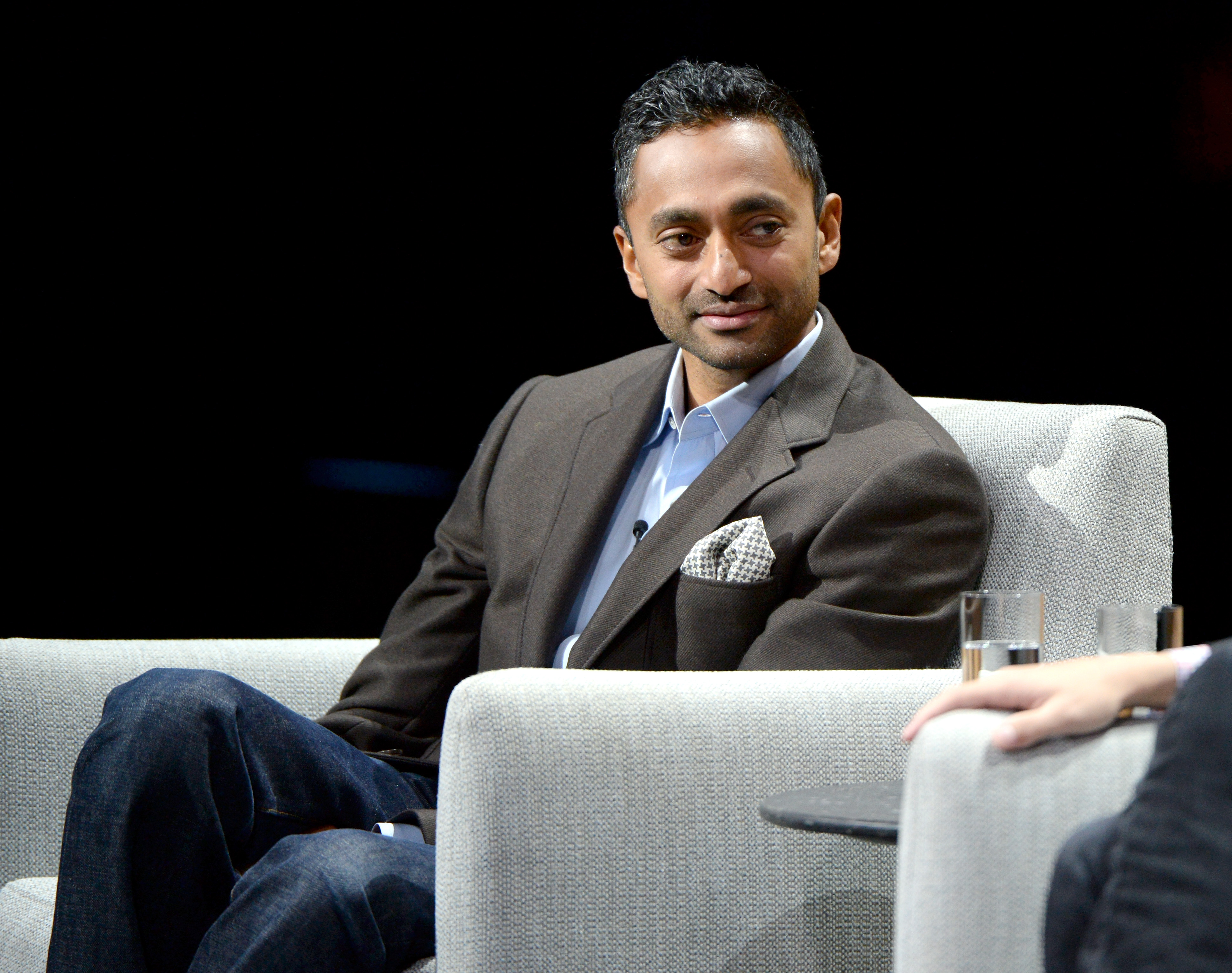NTWRK, is a fascinating experiment in live video shopping for the iPhone set. It’s been described as a blend of QVC and Twitter and Twitch and they just got a new slice of money from investors like Drake and Live Nation to expand into physical events.
There’s been a bunch of attempts at this kind of hybrid event shopping experience, but none of them have quite hit a home run yet. NTWRK was a pretty compelling experience even at launch last year. The core experience is a live show presented only in NTWRK’s app, where guests can talk about products which become available in the app as the show airs.
There was a built in opportunity to offer limited availability streetwear and sneakers, and an audience that founder Aaron Levant knew very well from his time running ComplexCon and Agenda, two big streetwear and marketing shows.
One of the first shows starred Ben Baller and Jeff Staple, and featured a drop of a new colorway of Staple’s iconic Pigeon Dunk from Nike . I tuned in and found the experience to be compelling in its own way. The live show provided context for the product and the interface let you purchase in a couple taps of a button (the shoes sold out immediately and the app inevitably crashed from the rush of hype beasts). The stream and app have gotten more stable since then.

Since the launch, NTWRK has experimented with various product areas and promotions. The latest funding is enabling expansion back into physical events and some new angles on the NTWRK model.
After getting kicked out of high school in 10th grade, Levant went on to work in graphic design, sales and marketing for an LA streetwear brand. That led to trade show attending and eventually to Levant founding his own show, Agenda in 2003. Agenda got bigger over the next 10 years, becoming one of the biggest action sports, streetwear and lifestyle tradeshows in the world. He sold a majority of Agenda to ReeedPOP, which owns Comic Con and stayed on in a development role. Eventually, he developed other shows including ComplexCon, a smash hit culture and sneaker show in partnership with Complex.
Last year, Levant left to found NTWRK.
“That transition really happened through a conversation that I had with Jimmy Iovine in September of 2017,” Levant told me in an interview last year. “I got introduced to him by a friend. He expressed his interest in a new company for him and his son, and we had similar interests and ideas around that. That night that I met him, I went home, stayed up all night to 4:00 in the morning and wrote the entire business plan for NTWRK.”
Iovine ended up as an investor via the MSA Enterprises vehicle, along with Warner Bros. Digital Networks, LeBron James, Maverick Carter and Arnold Schwarzenegger. Jimmy’s son Jamie is a co-founder and Head of Fandom at NTWRK.
One of Levant’s big takeaways from his time with ComplexCon and Agenda was that the physical audiences were valuable but a digital audience is built to foster through earned media and user-generated content around these lifestyle events.
“There’s 50,000 people in the room but I think there’s probably a million people online who want to engage with those products and that content,” said Levant. “Maybe I felt a little bit like I was using my skill set and I wasn’t extracting the full value out of it because I wasn’t in the e-com or digital media business in the past. I think that was a key unlock for me, how do I do that better with a phase two of my career?”
The past few months have seen a series of high profile launches and collaborations with sneaker and streetwear people. And now, the Live Nation and Drake tie up will lead to artist-driven collections sold on NTWRK’s app, unique ticket access, promo bundles developed by NTWKR and, yes, a new live event called NTWRK Presents that will launch in Q4.
In recent months, Drake sold some of his tour merch exclusively on NTWRK.

They’ve also been running auctions for rare resell market items like Supreme guitars and sneakers.
The concept of shopping as entertainment is far from new. There’s a reason that the easy buzzphrase people attach to NTWRK is ‘QVC for millennials’. But there has yet to be a platform that has managed to pin together the right culture with the right delivery mechanism at the right time. NTWRK has a chance to do this I believe because Levant has the taste for it, but also because he’s backing into this from a place of understanding when it comes to culture.
Too many times we see the technology of the platform take center stage — a clever delivery mechanism or good design. But, fundamentally, most tech companies are absolutely crap at culture. They’re too homogenic — they do not allow for and encourage the influence of the spaces that they’re catering to.
Black Twitter made Twitter. Creators of color made Vine. Asian and Indian users dominate Whatsapp. But when there is an attempt to engage even niche cultures in commerce or monetization the lack of inclusivity and understanding causes them to just screw up over and over.
Having started with live events that existed primarily as a framework for culture to create its own moments, Levant and NTWRK are in a better position to figure this out. If you’ve ever been to an Agenda or ComplexCon you know what I mean. There’s this pungent melange of culture, music, money, rare goods and ephemeral moment creation happening. The challenge is to make that work in a digital context, of course, and then to sort of ‘re-export’ that back into event formats.
“I think that, as I’ve said countless times, physical events have a huge organic digital ripple, but we needed the digital platform to already be established and scalable before we implemented the physical events, to have an effect on the larger digital platform,” Levant says about moving NTWRK into an IRL context. “In my previous roles, I spent 15 years really focusing on the physical experiential events and towards the end of my career doing that I came to the realization I was doing it backwards.”
I don’t necessarily think that this model’s going to work for everybody. I think Levant and co have a unique skill of bringing people together and I think the celebrity thing is a strong overall angle – right down to the investors.
“Obviously Drake is an icon that has massive influence over all of pop culture and I think there are few people in that category of him that can capture consumer’s imagination,” says Levant. “I couldn’t think of someone better than him to be involved with our company.”
There are other angles too, though, that still have the same thing at the core. NTWRK is creating this engaged audience and they’re giving them value and then offering them a very on-the-face, honest transaction: “Look, here’s this thing. If you buy it, we benefit. Thanks, peace.”
That kind of interaction model is foreign to media because of this idea that advertising is the only gain and the only way to build that monetary relationship. I think people are going to start to get wise to that but they still are very resistant.
“We were out there, talking to every brand and every agency in the world and it’s really interesting to watch who gets it and who’s totally confused,” said Levant when we spoke about the launch. “It’s really fun to have these conversations because people are just like, ‘Wait, what are you doing?’
They have a really hard time grasping it and they don’t know who we should talk to. Should we be talking to the media buying team? Should we be talking to the wholesale team? Should we talk to the PR team? I’m like, ‘No, we’re talking to everybody.””
“Companies tend to divide their business up into these silos, these business units and these internal categories and they usually don’t collaborate and play well together and when you get these big, global organizations, their head’s spinning because they don’t know who we should talk to because no one’s done this one-to-one yet.”
Right now as I write this I’m watching Bobby Hundreds talk live about his memoir This is Not A T-Shirt — while selling a bundle that includes the book and, yes, a t-shirt. Hundreds (Bobby Kim), built a streetwear brand when it was definitely not a thing to build a streetwear brand.
The bundle runs $50. I’m thinking about buying it.



